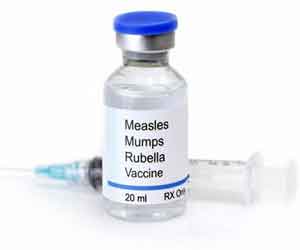- Home
- Medical news & Guidelines
- Anesthesiology
- Cardiology and CTVS
- Critical Care
- Dentistry
- Dermatology
- Diabetes and Endocrinology
- ENT
- Gastroenterology
- Medicine
- Nephrology
- Neurology
- Obstretics-Gynaecology
- Oncology
- Ophthalmology
- Orthopaedics
- Pediatrics-Neonatology
- Psychiatry
- Pulmonology
- Radiology
- Surgery
- Urology
- Laboratory Medicine
- Diet
- Nursing
- Paramedical
- Physiotherapy
- Health news
- Fact Check
- Bone Health Fact Check
- Brain Health Fact Check
- Cancer Related Fact Check
- Child Care Fact Check
- Dental and oral health fact check
- Diabetes and metabolic health fact check
- Diet and Nutrition Fact Check
- Eye and ENT Care Fact Check
- Fitness fact check
- Gut health fact check
- Heart health fact check
- Kidney health fact check
- Medical education fact check
- Men's health fact check
- Respiratory fact check
- Skin and hair care fact check
- Vaccine and Immunization fact check
- Women's health fact check
- AYUSH
- State News
- Andaman and Nicobar Islands
- Andhra Pradesh
- Arunachal Pradesh
- Assam
- Bihar
- Chandigarh
- Chattisgarh
- Dadra and Nagar Haveli
- Daman and Diu
- Delhi
- Goa
- Gujarat
- Haryana
- Himachal Pradesh
- Jammu & Kashmir
- Jharkhand
- Karnataka
- Kerala
- Ladakh
- Lakshadweep
- Madhya Pradesh
- Maharashtra
- Manipur
- Meghalaya
- Mizoram
- Nagaland
- Odisha
- Puducherry
- Punjab
- Rajasthan
- Sikkim
- Tamil Nadu
- Telangana
- Tripura
- Uttar Pradesh
- Uttrakhand
- West Bengal
- Medical Education
- Industry
29 lakh children in India miss first dose of measles vaccine: UNICEF

An estimated 169 million children missed out on the first dose of the measles vaccine between 2010 and 2017, or 21.1 million children a year on an average, -- UNICEF
New Delhi: India has 2.9 million children who have missed out on the first dose of measles vaccine between 2010 and 2017 despite over 80 per cent of immunisation coverage, the UNICEF said recently.
India, with its large annual birth cohort of 25 million, is followed by Pakistan and Indonesia - 1.2 million each, and Ethiopia 1.1 million, it said, adding that the situation is "critical" in low and middle-income countries.
The United States topped the list of high-income countries with most children not receiving the first dose of the measles vaccine between 2010 and 2017 at more than 2.5 million.
It is followed by France and the United Kingdom, with over 600,000 and 500,000 unvaccinated infants, respectively, during the same period.
An estimated 169 million children missed out on the first dose of the measles vaccine between 2010 and 2017, or 21.1 million children a year on an average, the UNICEF said.
Widening pockets of unvaccinated children have created a pathway to the measles outbreak around the world.
"The ground for the global measles outbreaks we are witnessing today was laid years ago," UNICEF Executive Director Henrietta Fore said.
Read Also: Measles cases rise up by 300 percent consecutively for past two years Globally: WHO
"The measles virus will always find unvaccinated children. If we are serious about averting the spread of this dangerous but preventable disease, we need to vaccinate every child, in rich and poor countries alike," Fore said.
In the first three months of this year, more than 1,10,000 measles cases were reported worldwide - up nearly 300 per cent from the same period last year. An estimated 1,10,000 people, most of them children, died from measles in 2017, a 22 per cent increase from the year before, the body said in a statement.
Two doses of measles vaccine are essential to protect children from the disease. However, due to lack of access, poor health systems, complacency, and in some cases fear or scepticism about vaccines, the global coverage of the first dose of the measles vaccine was reported at 85 per cent in 2017, a figure that has remained relatively constant over the last decade despite population growth.
Read Also: Madagascar measles epidemic kills more than 1,200 people
Global coverage for the second dose is much lower at 67 per cent. The World Health Organization (WHO) recommends a threshold of 95 per cent immunisation coverage to achieve so-called 'herd immunity'.
"Worldwide coverage levels of the second dose of the measles vaccines are even more alarming. Of the top 20 countries, with the largest number of unvaccinated children in 2017, nine have not introduced the second dose," it said in the statement.
Twenty countries in sub-Saharan Africa have not introduced the necessary second dose in the national vaccination schedule, putting over 17 million infants a year at a higher risk of measles during their childhood.
"Measles is far too contagious," said Fore, adding that "it is critical not only to increase coverage but also to sustain vaccination rates at the right doses to create an umbrella of immunity for everyone".
Medical Dialogues Bureau consists of a team of passionate medical/scientific writers, led by doctors and healthcare researchers. Our team efforts to bring you updated and timely news about the important happenings of the medical and healthcare sector. Our editorial team can be reached at editorial@medicaldialogues.in.


